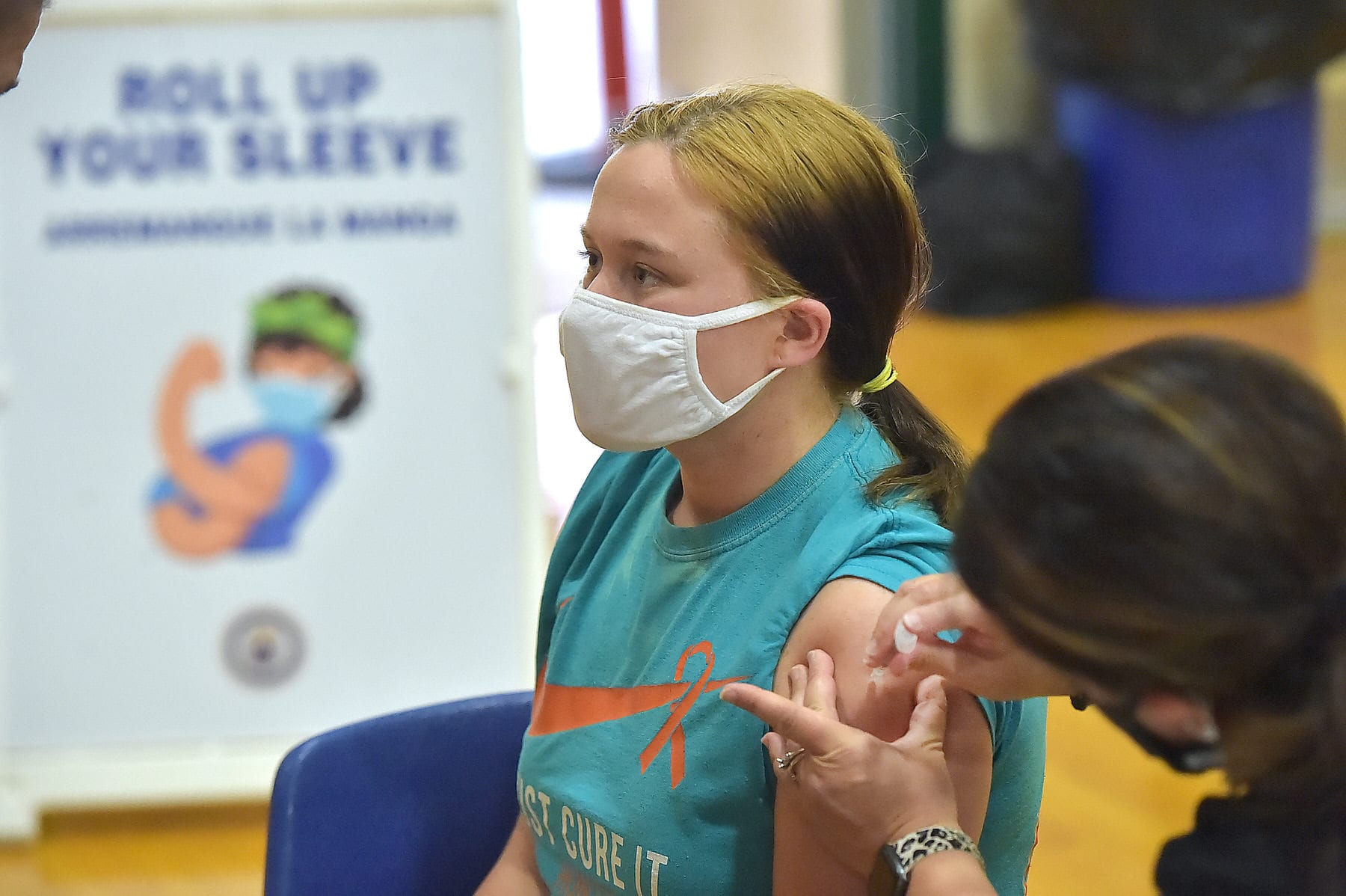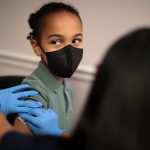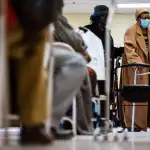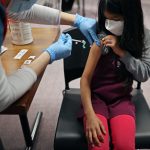Marcy Bessman, a mother of two in Olathe, Kansas, was preparing dinner Monday evening when she heard the evening news’ announcement: The U.S. Food and Drug Administration approved the Pfizer vaccine for people ages 12 and 15 — the first vaccine to become eligible for younger adolescents in the United States.
“I just screamed,” Bessman said.
Bessman’s 13-year-old daughter is the only one in her family who has not received a dose of the vaccine — her 16-year-old already got it — and despite the low risk for adolescents, Bessman has been nervous her daughter would contract the virus. She was born prematurely, causing her to be immunocompromised.
“That’s what we’ve waited for. She has issues with her lungs and knowing that she’s now eligible just gives that level of protection … so it’s invaluable,” Bessman said.
Bessman signed her daughter up for a vaccine appointment immediately, and she is scheduled to receive the first dose of the Pfizer vaccine this Friday at a local grocery store. (The Centers for Disease Control and Prevention has to approve the shot, and is expected to meet shortly.)
Though younger children still aren’t eligible for the vaccine — and exactly how daycares, camps and after school activities will pivot with the change remains uncertain — many experts on child care and the workforce see this as a first step to helping more women be able to search for and keep employment. Women have been hit hardest by daycare closures, remote schooling and layoffs in general. As schools have the potential to allow fully vaccinated kids to return to full-time schedules, mothers may feel the change most, experts say.
“There are many families who are struggling, who can’t either physically go to work or can’t be as productive as they usually are because they’re trying to do both: be a teacher’s aide and be a worker at the same time,” said Emily Gee, a senior economist in health policy at the left-leaning Center for American Progress.
Just last month, 165,000 women dropped out of the workforce altogether, according to recent data from the Bureau of Labor Statistics. Experts say this partly comes from increased child care responsibilities due to the closure of day care centers and remote learning. For mothers of older children, there has still been the weight of online learning and the lack of socialization.
Bessman can see how hard social isolation has been for her two teens who have been largely deprived of any social gatherings for over a year.
“They haven’t seen anyone other than my husband and myself,” said Bessman, who will feel more comfortable with people coming over to the house when their whole family is fully vaccinated.
Jennifer Greenfield, an associate professor in social work at the University of Denver, suspects that the FDA’s announcement will also cause activities like summer camps for teens to pick up again — which could ease the dual responsibilities of work and child care many caregivers have endured for over a year. However hopeful, Greenfield is concerned looking ahead at the potential impacts of eligibility for children between the ages of 2 and 11, noting that child care centers and preschool facilities have already anticipated lower enrollment rates and have modified staffing accordingly.
“Will the child care industry be able to rebound as quickly as parents need it to in order to accommodate new enrollments of fully vaccinated kids?” Greenfield asked.
Gee echoes this sentiment and calls on industries to keep in mind the importance of letting care givers take time off to allow their children to get the vaccine if they so choose.
“Some people don’t have that kind of flexibility,” Gee said. “And so nobody should be in a position where they risk losing hours, even losing a job in order to protect the health of their kids and their family.”
Kim Holloway, a mother of three kids — ages 8, 10 and 11 — in Kerry, North Carolina, got laid off from her job just as the lockdowns began over a year ago. She is staying afloat largely because of a survivor’s check she gets due to the death of her husband last summer, she said. She won’t look for work until her children are fully vaccinated and back in school full-time, which she is eagerly anticipating.
“I’m literally waiting until my children can be safe to go back to school before I can go back to work,” Holloway said. “Realistically, to even try and get a virtual job full time, I would feel guilty when it came to taking that paycheck from my employer because I’ve got to watch my own children in school and make sure they’re doing their schoolwork. I’m basically a TA for the fifth, fourth and second grade.”
While some mothers are eager to get their children vaccinated to either reenter the workforce or for health reasons, others still remain hesitant and want to wait it out. Clinical trials found that the immune response after the vaccine for those between the ages of 12 and 15 was “just as good as” those between 16 and 25. Among the 1,005 adolescent participants who had no prior reported COVID-19 infection and received the vaccine, there were zero COVID-19 infections.
“Parents and guardians can rest assured that the agency undertook a rigorous and thorough review of all available data, as we have with all of our COVID-19 vaccine emergency use authorizations,” said Janet Woodcock, acting FDA commissioner, in a statement released Monday.
Sandra Kearns lives in San Antonio, Texas, with her four children. She is nervous for her youngest daughter, almost 15, to get the vaccine although she is now eligible. Her daughter is highly allergic, something the FDA warns against for getting the vaccine. She hopes that others can be understanding of her hesitancy as she waits it out a little longer before making a final decision with her daughter.
“Just extend a little grace and understanding and give people some time to work it out,” Kearns said.





